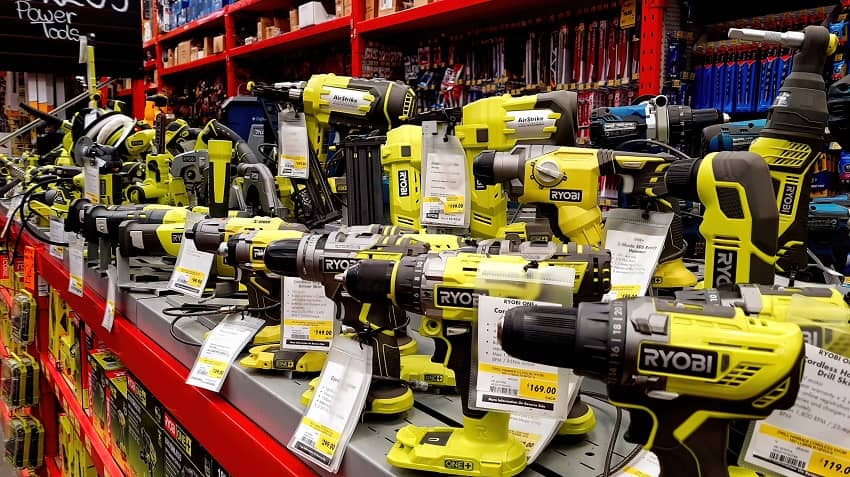When it comes to power tools, finding the right brand can be a daunting task. Among the multitude of options available, Ryobi stands as a recognizable name that has garnered attention for its range of tools catering to both professionals and DIY enthusiasts. However, the question remains: Is Ryobi a good brand? Let’s delve deeper into the essence of Ryobi tools, assessing their quality, performance, and reliability to uncover the truth.
A Brief Introduction to Ryobi
Ryobi, a renowned name in the realm of power tools, traces its roots to its founding in 1943 in Japan. Initially, Ryobi was primarily engaged in the production of die cast components for automobiles. This foundational period laid the groundwork for Ryobi’s meticulous approach to precision engineering and high-quality manufacturing techniques, crucial elements that would later define its power tools.
However, it was in the 1960s that Ryobi underwent a significant transformation. Sensing the growing demand and potential in the power tools market, Ryobi shifted its core focus from automobile components to power tools. This strategic pivot marked a crucial turning point in the brand’s trajectory, leading to the rapid expansion of its product line to encompass a vast array of tools catering to diverse applications and user needs.
During this expansion phase, Ryobi’s commitment to innovation and technological advancement became evident. The brand adopted cutting-edge manufacturing processes and embraced advancements in tool design, incorporating features that prioritized user convenience, efficiency, and performance.
One of Ryobi’s notable achievements was the introduction of the One+ system, a game-changing innovation in cordless power tools. The One+ system, characterized by its interchangeable battery platform, revolutionized the way users interacted with their tools. It allowed the same battery to power multiple tools across Ryobi’s product range, enhancing versatility and cost-effectiveness for consumers.
Furthermore, Ryobi’s commitment to user accessibility and affordability played a pivotal role in its market positioning. By offering a balance between quality and price, Ryobi carved out a niche for itself, attracting both DIY enthusiasts and light professional users seeking reliable tools without breaking the bank.
The brand’s global expansion and collaborations, particularly its association with Techtronic Industries (TTI), a multinational corporation specializing in power tools and home improvement products, further solidified Ryobi’s presence in the market. Leveraging TTI’s resources and expertise, Ryobi continued to refine its product offerings, introduce new technologies, and expand its reach to cater to a broader audience worldwide.
Quality Evaluation

Quality is a paramount factor influencing a brand’s reputation. Ryobi’s tools are often positioned as mid-range products, making them more affordable than high-end professional-grade tools. This affordability, however, doesn’t necessarily equate to inferior quality.
While some professionals might argue that Ryobi tools may not endure the same heavy-duty usage as some premium brands, they are often deemed adequate for DIYers and light to moderate tasks. The build quality and materials used in Ryobi tools generally align with their pricing, but they tend to offer decent durability and functionality for their intended purposes.
Performance Assessment
Performance is the heartbeat of any power tool. Ryobi tools, known for their versatility, offer a broad spectrum of products, from drills and saws to lawn equipment and specialty tools. Their cordless lineup, particularly their One+ system, is highly regarded for its interchangeable battery platform, allowing users to power multiple tools with a single battery.
In terms of performance, Ryobi tools typically perform admirably for common household and light professional tasks. However, when pushed to more demanding industrial-grade work, they may show limitations compared to higher-end counterparts. Nonetheless, for the average user, Ryobi tools often deliver commendable performance.
Reliability and Customer Satisfaction
Reliability is a significant aspect influencing brand loyalty. Ryobi has garnered a loyal customer base, thanks to its accessibility, affordability, and decent reliability. Their customer service, while not always perfect, tends to support consumers with warranty claims and inquiries.
Ryobi’s wide availability, both online and in retail stores, also adds to its appeal. Consumers appreciate the convenience of finding replacement parts, accessories, and additional batteries without hassle.
Final Verdict
The question of whether Ryobi is a good brand doesn’t have a straightforward answer. It depends on the user’s needs and expectations. For budget-conscious consumers seeking adequate performance and a versatile range of tools for household or light professional use, Ryobi presents a compelling option.
However, for professionals demanding high-level performance and durability for heavy-duty tasks, investing in premium brands might be more suitable. Ultimately, Ryobi holds its ground as a decent brand offering reliability, affordability, and versatility in its product range.
